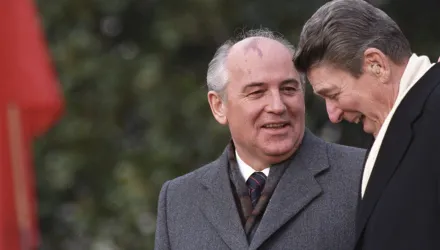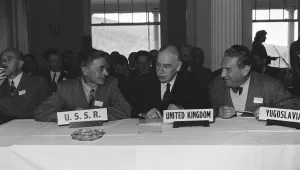International Security is America's leading peer-reviewed journal of security affairs.
Overview
Alexander Golts of Yezhenedelnyi Zhurnal (Weekly Journal) and Tonya Putnam of Stanford University explore the history of failed military reform in Russia and what it might reveal about current Russian military reform efforts. Golts and Putnam maintain that despite “laboring under conditions of acute infrastructure decay and extreme shortages of equipment, a recruitment crisis exacerbated by a dysfunctional conscription system and the exodus of junior officers, a lack of combat-ready forces for deployment to the ongoing conflict in Chechnya, and force structures and strategies that are woefully inadequate to address the country’s security threats,” the Russian military continues to thwart governmental efforts to change the organizational and operational structures it inherited from the Soviet Union. The authors trace this failure to reform to three interrelated aspects of the militarist legacy of Peter the Great: (1) Russians’ long association of the prestige of the state with the power and prestige of the Russian military, (2) the military’s “unparalleled” level of administrative and operational autonomy, and (3) a long history of military favoritism.
Golts, Alexander and Tonya Putnam. “State Militarism and Its Legacies: Why Military Reform Has Failed in Russia.” Fall 2004
The full text of this publication is available in the link below.



